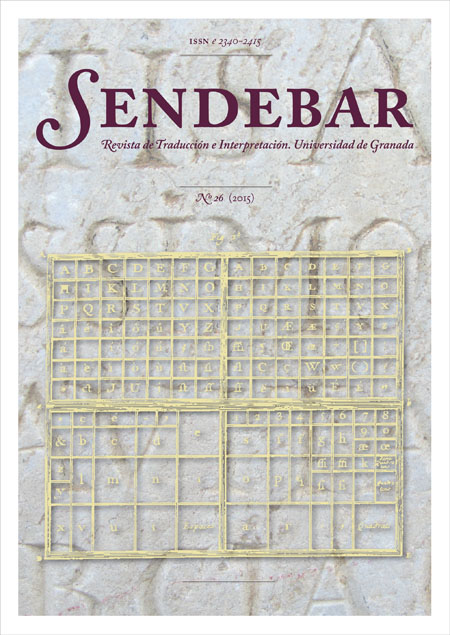La traducción y recepción en España de Nosotros, de Evgueni Ivánovich Zamiatin
DOI:
https://doi.org/10.30827/sendebar.v26i0.2371Palabras clave:
Zamiatin, Nosotros, ciencia ficción, distopía, censuraResumen
En 1921 Evgueni Zamiatin escribió Nosotros, novela precursora del género distópico que las autoridades soviéticas censuraron por ser una sátira de los regímenes totalitarios. Pese a inspirar a autores como Orwell o Huxley, Zamiatin ha pasado desapercibido para el gran público. Además de explicar las razones de esta falta de reconocimiento, hemos realizado un análisis contrastivo entre la novela rusa y cuatro traducciones españolas. Dicho análisis permite comprobar que el estilo vanguardista de Zamiatin se ha transformado en una prosa funcional y transparente en las versiones españolas. El hecho de catalogar la novela en el género de la ciencia ficción podría explicar que sus llamativos rasgos formales se hayan sacrificado en aras de la fluidez de lectura que caracteriza a los géneros populares. La ubicación de un texto en uno u otro género literario condiciona el método de traducción del que es objeto.
Descargas
Descargas
Publicado
Cómo citar
Número
Sección
Licencia
Terminos de Licencia Sendebar.

















